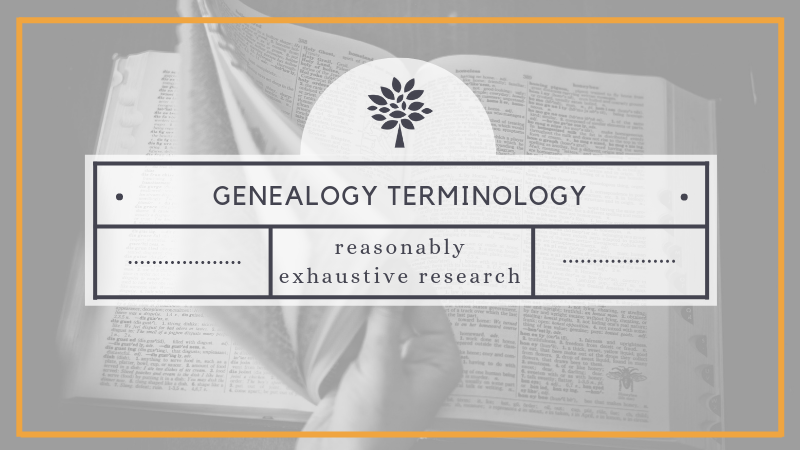
When I was a beginning family history researcher, I often wondered, “How many sources do I need to have to be confident that a person is in the correct family? As I have grown into my role as a genealogist, I have come to understand the need to create as clear and accurate a picture of history as possible. However, the question “How much is enough?” sometimes still pops into my head.
The aim of genealogists should be to conduct “reasonably exhaustive research,” which is defined in the book Genealogy Standards as:
Research thorough enough to meet five criteria:
Board for Certification of Genealogists, Genealogy Standards, second edition, (Nashville: Ancestry.com, an imprint of Turner Publishing Company, 2019).
1 – Yield at least two sources of independent information items agreeing directly or indirectly on a research question’s answer.
2 – Cover sources competent genealogists would examine to answer the same research question
3 – Provide at least some primary information and direct, indirect, or negative evidence from at least one original record
4 – Replace, where possible, relevant authored narratives, derivative records, and information that is secondary or undetermined.
5 – Yield, where possible, data from sources that indexes and databases identify as potentially relevant.
These criteria are great guidelines to keep in mind when determining whether enough evidence has been found to prove or disprove hypotheses in genealogical research.
